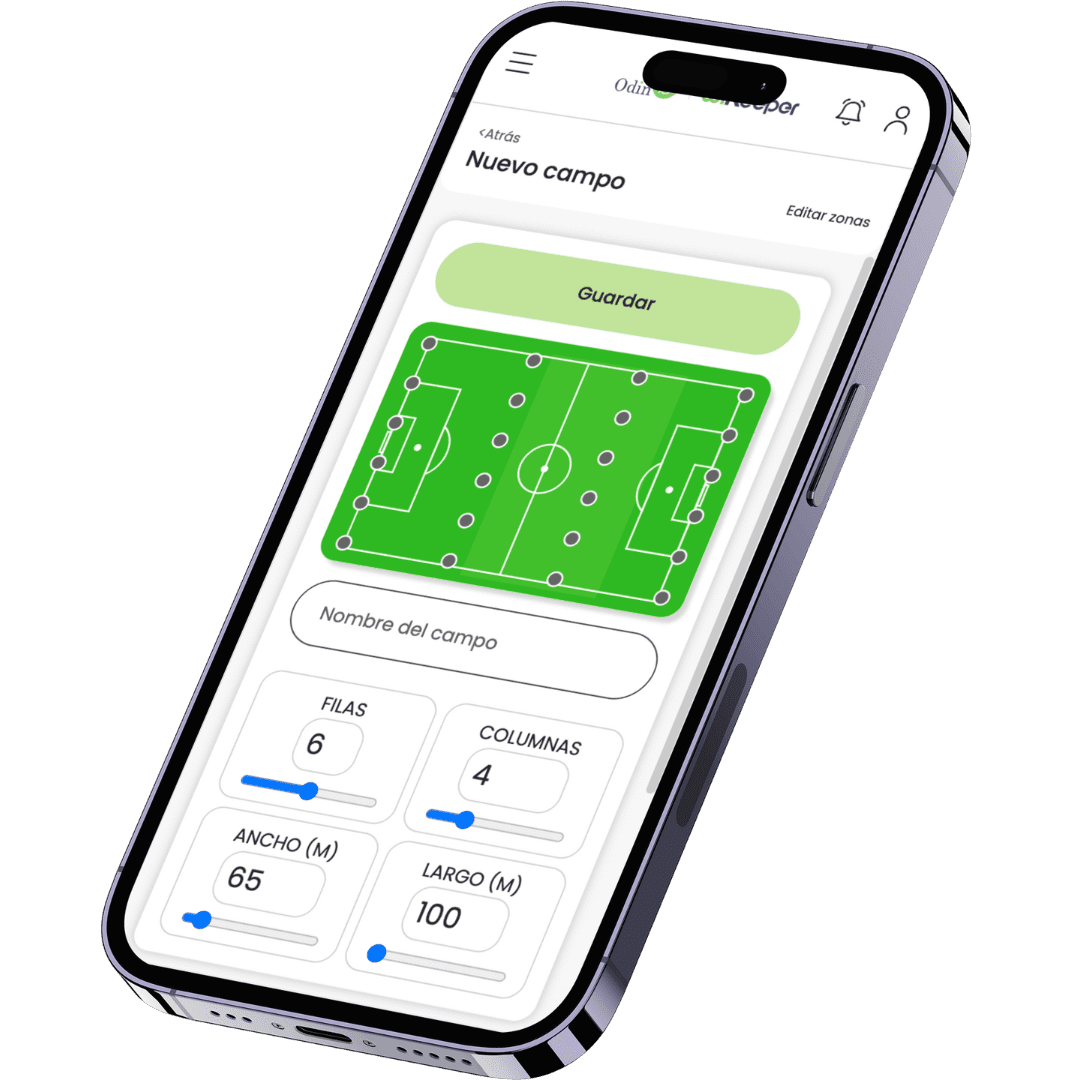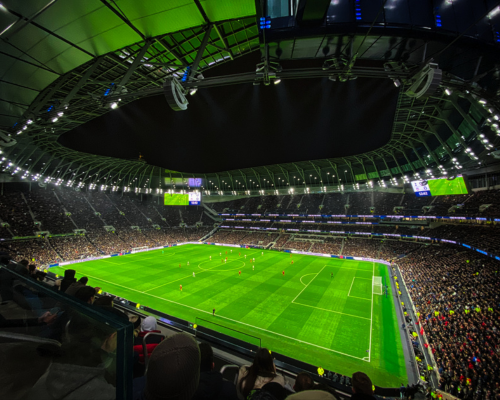In recent years, football stadiums have gone from being simple sports facilities to becoming connected, efficient, and sustainable spaces . Technology has disrupted sports management and is now essential for improving operations, optimizing resources, and delivering a high-quality experience to clubs, fans, and technical staff.
The 2030 World Cup is getting closer
The hosting of the 2030 World Cup, with matches in Spain, Portugal, Morocco, as well as Argentina, Uruguay, and Paraguay, is accelerating the need to modernize sports facilities. It’s not just about complying with new regulations or attracting international events. It’s about taking the step toward a new stadium model —one that’s smarter, more sustainable, and ready for the future.
In this post, we explore how IoT (Internet of Things) technology can transform a soccer field into a modern and efficient facility without major construction work. We show you concrete solutions, operational advantages, and why now is the perfect time to implement these advances.
What are smart stadiums?
A smart stadium is one that uses sensors, automation, and digital platforms to monitor, analyze, and optimize the facility’s operation in real time . From capacity control to energy management, environmental quality, and turf irrigation, everything can be managed in an integrated and efficient manner.
Thanks to a distributed sensor network and a centralized platform, technical staff can:
Detect incidents immediately.
Make decisions based on real data.
Improve safety and comfort.
Reduce unnecessary consumption and operating costs.
With OdinS IoT solutions, this transformation can be done progressively and in a modular manner, starting with the areas of greatest impact and scaling based on the needs of the facility.
Why start the transformation to smart stadiums before the 2030 World Cup?
The World Cup will bring with it a series of operational and regulatory requirements that go far beyond the spectacle:
Exhaustive capacity control.
Efficient management of water and energy.
More accessible, safer, and healthier environments.
Implementing smart solutions now not only allows you to be prepared, but also significantly improves the experience offered to clubs, users, and visitors.
6 key technologies for turning stadiums into smart stadiums
1. Capacity control with artificial intelligence

Properly managing crowd size is key to ensuring safety. Thanks to smart cameras and automatic counting systems, you can:
Know how many people are in each area in real time.
Detect overcrowding or access blockages.
Improve evacuation plans.
Receive alerts in the event of abnormal situations.
A must-have feature for stadiums of any size hosting matches, concerts, or other large-scale events.
2. Air quality and environmental comfort
In enclosed or semi-enclosed areas, such as VIP lounges, locker rooms, or press rooms, proper ventilation is essential. With IoT sensors, it’s possible to:
Measure CO₂, temperature and humidity.
Automatically activate ventilation or air conditioning.
Ensure a healthy and comfortable environment.
Generate historical data for audits or inspections.
In addition to improving the attendee experience, these measures help comply with environmental quality regulations.
3. Noise control

Noise levels during matches or events can be a problem if not managed properly. Acoustic monitoring allows for:
Detect noise peaks in real time.
Comply with municipal ordinances.
Protect the hearing health of staff and attendees.
Prevent complaints or sanctions.
4. Optimization of energy and water consumption
Lighting, air conditioning, irrigation… With energy management solutions you can:
Measure electricity or water consumption by area.
Detect leaks or abnormal behavior.
Schedule system turn-on based on schedules or presence.
Justify sustainable investments with real data.
5. Smart lawn watering with WiKeeper Cloud

Turf maintenance is one of the most critical and expensive tasks on soccer fields. If you’re still using a manual or timed irrigation system, you’re likely wasting water and resources.
Aware of the need for smarter irrigation, OdinS , in collaboration with Riversa , has developed WiKeeper Cloud , a digital platform designed to manage the irrigation of sports fields remotely, automatically and highly efficiently.
WiKeeper adapts to any existing irrigation system and offers an intuitive control experience from any device. It allows you to program customized cycles by sector, execute manual actions when necessary, and receive immediate notifications of any incidents, facilitating a quick and accurate response by maintenance personnel.
The result is a turf in optimal condition , with optimized water consumption and much more sustainable management. This solution not only improves the quality of the playing field, but also reduces operating costs and reinforces the stadium’s environmental commitment , aspects increasingly valued by both managers and sports institutions.
Looking ahead to the 2030 World Cup, where sustainability will be a key criterion, technologies like WiKeeper Cloud will make a difference. Water conservation and efficient natural resource management will not only be an operational advantage, but also a strategic factor to stand out among the major sports facilities of the future.
6. Centralized management platform
All this information is integrated into a unified IoT platform developed by OdinS , from which you can:
Monitor the status of the stadium in real time.
Receive automatic alerts in the event of incidents.
Consult historical data.
Expand functions with new modules.
A tool designed to facilitate decision-making, improve operational efficiency, and prevent system fragmentation.
And the investment?
You don’t need a major project or a large budget to get started. OdinS IoT solutions include:
Modular : you can start with the most urgent (irrigation, capacity, consumption).
Scalable : they expand according to your needs.
Compatible with third-party technology
The 2030 World Cup sets the pace. You can lead the change.
It doesn’t matter whether your stadium will be an official venue or not. The important thing is to live up to the expectations of a changing football landscape. Investing in digitalization now ensures that your facility is more efficient, offers a superior experience, complies with future regulations, and positions itself as a benchmark in modern sports management.
At OdinS, we’ve been helping facilities like yours make this technological leap for over 10 years. Talk later?
🔗 Check out our smart stadium solutions
📩 Or contact us and we’ll advise you without obligation.




